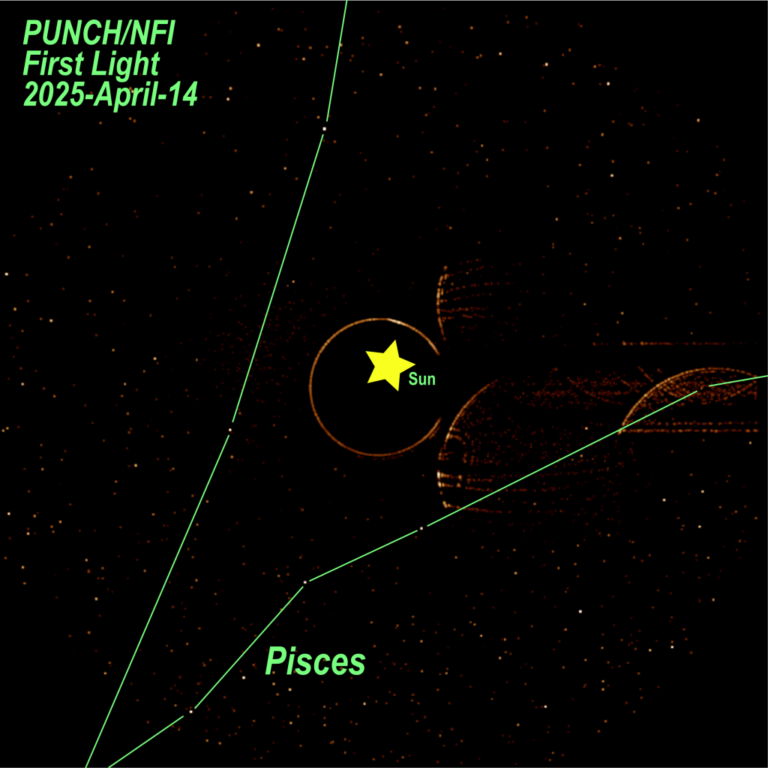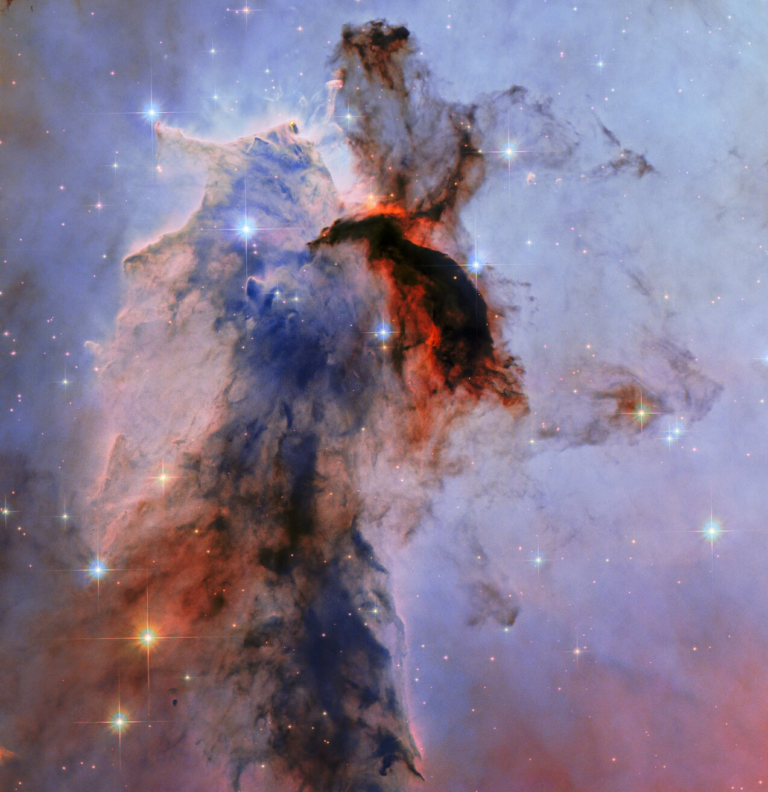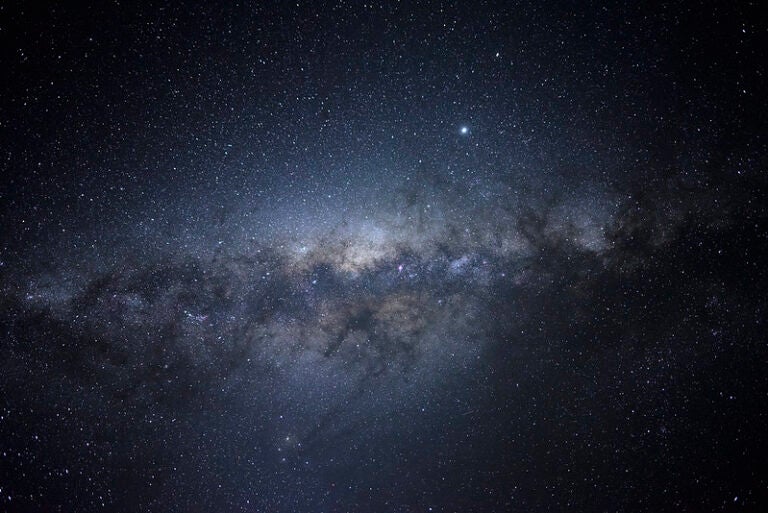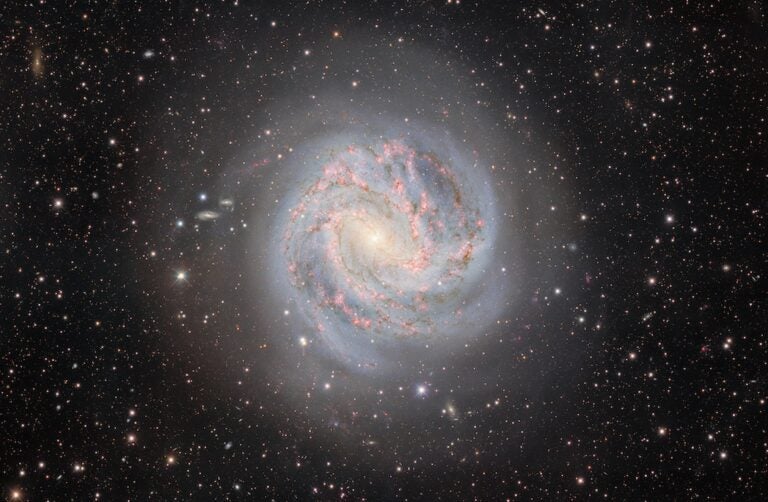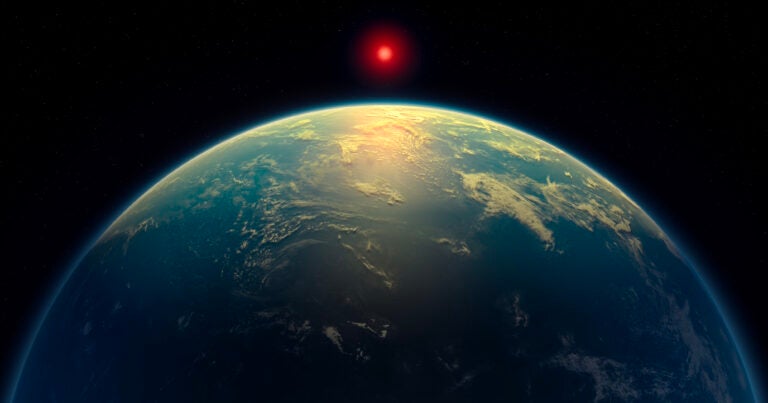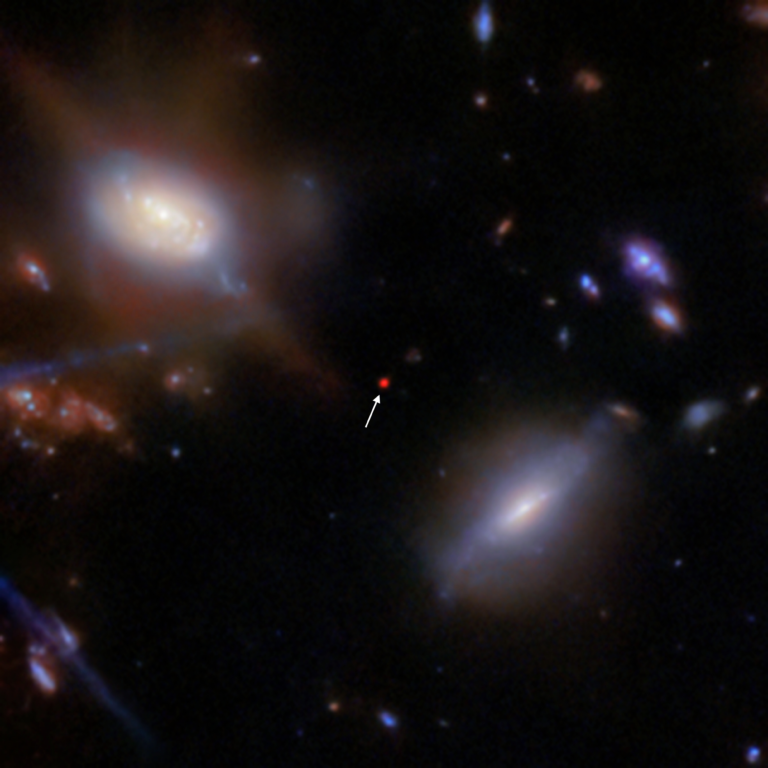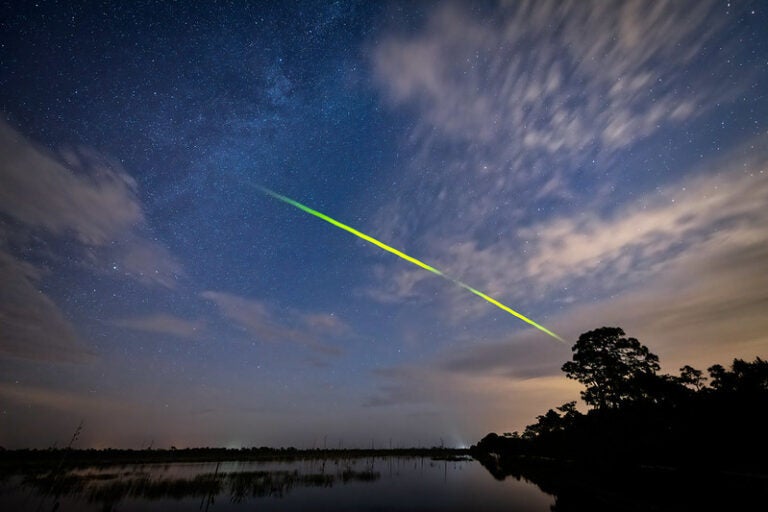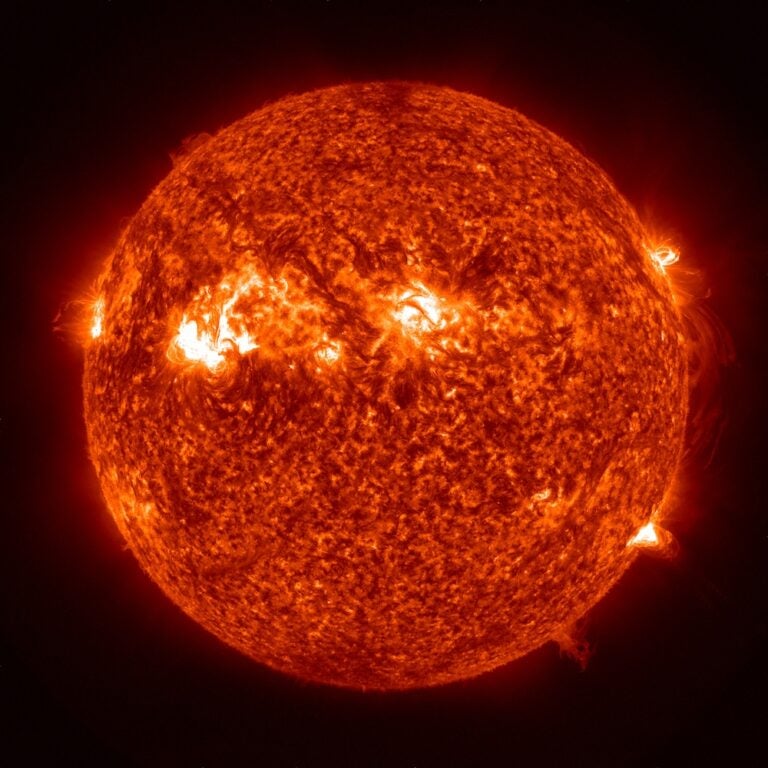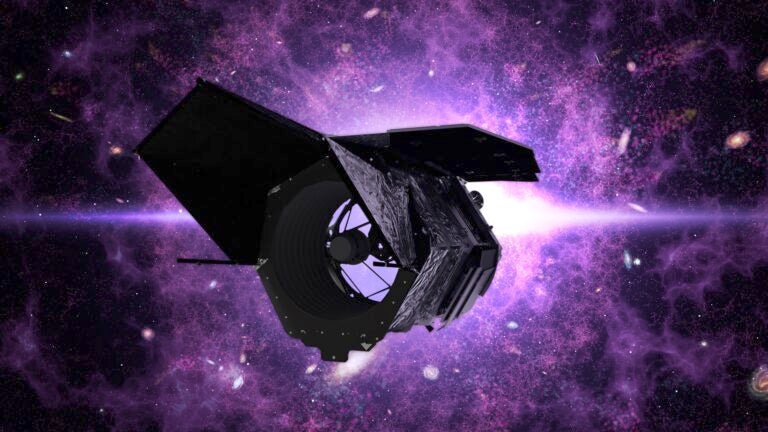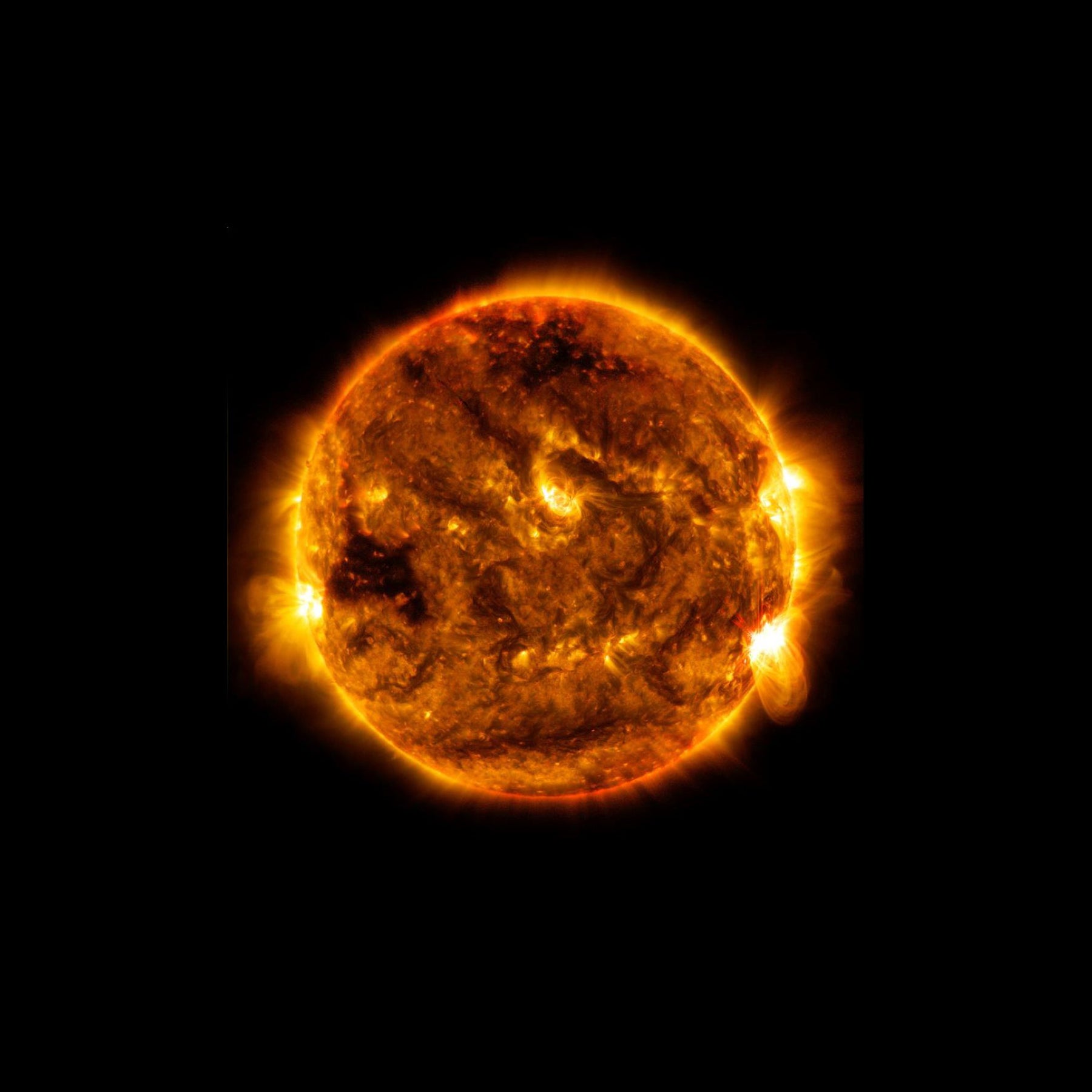
The Sun provides necessary energy for life on Earth, thanks to its powerful but compact core, which takes up just 1/50 our star’s volume. Credit: NASA/SDO
It’s not just observing star clusters or planets that creates delight. Celestial knowledge can be just as exciting, especially when it comes with weighty implications. This month, let’s consider 10 basic astronomy truths. Perhaps you already know some of these facts — after all, I’ve explored about half of them on this page in the past decades, so keen readers may remember them! But many are unfamiliar to most people, so award yourself 3 grams of lunar regolith for each of these you know.
- One could say there are actually two universes. Everything from where you now sit out to a distance of 46 billion light-years is the visible universe, also called the observable universe. It constitutes everything we can ever see and know. Beyond that point begins the other universe: the unobservable universe. We know nothing about it because none of its light can ever get here. Space’s large-scale flat topology shows that the “other side” is vast and maybe even infinite.
- The possibility of countless other universes — the multiverse idea — presumes they exist in dimensions beyond the four we’re familiar with. But there’s never been any evidence for extra dimensions.
- Life on Earth depends on the Sun. But the real key is a tiny solar component just 1/50 the Sun’s total volume: its core. Seen separately, it would appear as a blindingly dazzling starlike pinpoint from Earth. Each second, it unleashes the energy of 96 billion 1-megaton H-bombs.
- Most gravitationally connected bodies orbit in elliptical paths, making that geometric shape a true cosmic underpinning. Pound two nails into plywood and loosely drape a loop of string around them both. Tightly pull a marker outward against the string and you’ll draw an ellipse. Each nail is called a focus. In every planet’s orbit in our solar system, the Sun occupies one focus. The other is just an empty spot of space.
- The Moon’s most abundant element is oxygen, albeit always bound to another element.
- Empty space seethes with power. We have more names than knowledge about it. It’s been called vacuum energy, dark energy, the cosmological constant, and zero-point energy. This energy supposedly randomly creates particles and antiparticles that briefly appear and then vanish, but this has never been observed.
- It’s widely repeated that Nicolaus Copernicus was the first to declare that Earth orbits the Sun. This truth is even termed the Copernican system. But some 17 centuries earlier, Aristarchus on the Greek island of Samos was applauded for saying the same thing.
- Meteors are slowed so much by our atmosphere that if they strike anything on the ground, their impact speed is just 250 to 300 mph (400 to 480 km/h), down from their original typical entry speed of 80,000 mph (128,700 km/h). That’s why famous recent meteorites have merely penetrated a roof and a ceiling (1971, 1982, and even 2023), caused a simple bruise when it hit someone (1954), and penetrated a parked car’s sheet metal (1938, 1992). And they’re never hot when they land.
- Looking for easy rebuttals to common conspiracy beliefs? When someone says, “It was a hoax; we never went to the Moon,” just ask, “Then where did those Saturn rockets go after liftoff?” If they’d merely orbited Earth, they would have been brightly visible to everyone. Plus, our adversaries tracking them on radar would have happily spilled the beans. To those who insist Earth is flat, just say, “Phone any friend who lives a few thousand miles to your west and ask them where they now see the Sun. If it’s setting at your location but they’re viewing it up high, Earth must be round. Simple.”
- Although many think the ET issue boils down to whether or not we’re alone in the cosmos, it’s not so black-and-white. Some people — such as Nobel-Prize-winner Werner Heisenberg — were convinced we’re manifestations of a single awareness that is the universe’s basic nature, since consciousness is not derivable from any other component. By such reasoning, there are no “others.”
One of astronomy’s benefits is the vastness of its subject. What’s your own list of the most amazing or surprising facts about the cosmos? Share them!

